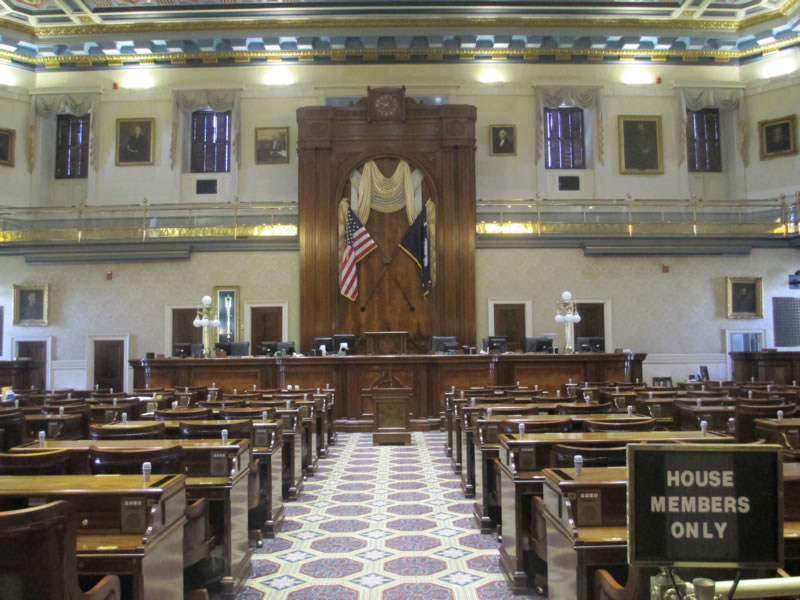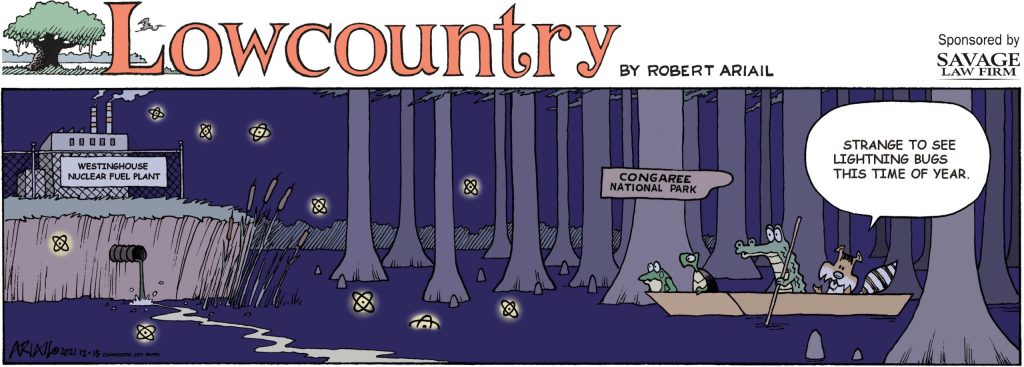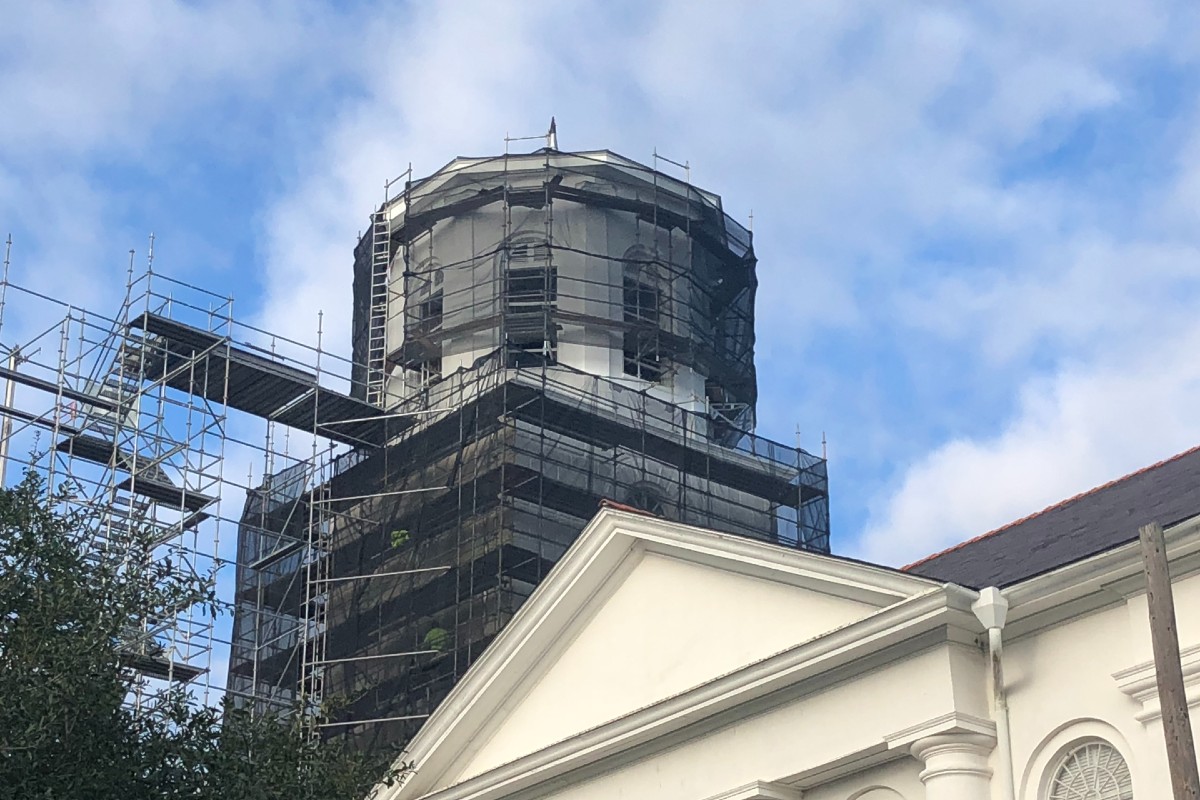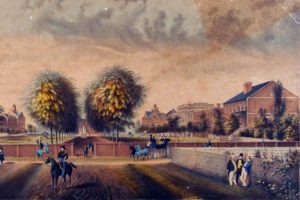STATEHOUSE REPORT | ISSUE 20.51 | DEC. 17, 2021
BIG STORY: More for culture wars ahead in 2022 session
NEWS BRIEFS: President to speak today in Orangeburg at S.C. State graduation
LOWCOUNTRY, Ariail: Different lightning bugs
COMMENTARY, Brack: How helping your local newspaper helps democracy
SPOTLIGHT: Charleston Animal Society
FEEDBACK: Time that someone called out Haley
MYSTERY PHOTO: Repair work
GREAT GIFT: Looking for a great holiday gift? What about the fun history, 350 Facts About Charleston? Only $20 in print – and now $9.99 as an ebook.
More for culture wars ahead in 2022 session

By Andy Brack, a news analysis | The nation’s culture wars have been on public display in the South Carolina House of Representatives. Just look at the 225 bills filed in the chamber since Nov. 10.
Once you subtract the 100 congratulatory or memorial resolutions for organizations or people across the state who have done something laudable or died, you’re left with 125 new House bills. Only a few would qualify as serious policy proposals to seek bipartisan support, such as ways to redistrict the state’s election districts or change the tax code.
What you’re left with are dozens of bills designed to appease or inflame those generally on the edges of political debate. For example, there are at least 10 bills seeking to regulate use of face masks, treatment of COVID-19, use of vaccinations or something else that’s headline-grabbing related to the pandemic. There are several proposals for tax exemptions for special interests. There are a handful of ideas on how to “fix” election laws that feed conspiracy theories about election fairness.
And then there are individual bills that range from how to keep some flags out of schools, stop social media censorship, prohibit removal of porn filters, keep cars from being jacked up or down, require divorce cases involving kids to have jury trials, get rid of college tenure and keep “ideological indoctrination” (critical race theory) out of schools. Additionally, there are more ideas on dealing with abortion and guns.
It’s not only conservatives with far-out proposals. For example, there’s one bill, H. 4610, that wants to keep the scent of marijuana from being probable cause for a police officer (wait for it) to probe whether illegal marijuana might be in the vicinity.
At this point in time, the S.C. House seems to be a Wild West of legislation heading into an election year where many Republicans apparently are worried they may not look like they support former President Trump enough. So to seem tough and decisive, they propose legislation to keep somebody even more on the right from running against them.
“Some of them want to be crazy enough to prove nobody should run against them,” said one key legislative leader who asked not to be identified. And the political dynamic reportedly has House leaders struggling to keep the GOP caucus together.
A frustrated state lobbyist observed, “We should just revise the legislative process. It wouldn’t take much change at this point. The House could recognize sports teams and hold parties for culture warriors. The Senate could write and pass legislation.”
A House insider (no one seemed to want to talk on the record about this subject) added there seemed to be a lot of “tail wagging the dog” in the House: “With the GOP gains last year, they have been emboldened to pass things like the fetal heartbeat bill and open carry. Things that were quietly killed this year (like critical race theory or the anti-trans ‘Save Women’s Sports Act’) are sure to come back in 2022 . … I usually try not to put too much stock into pre-filed bills, but based on what I’m seeing, they are a clear indication of what is to come.”
- Have a comment? Send to: feedback@statehousereport.com.
President to speak today at S.C. State graduation

Staff reports | President Joe Biden will speak today to December graduates of S.C. State University, alma mater of his friend and important political ally U.S. Rep. Jim Clyburn, D-S.C. It’s Biden’s first visit as president since the 2020 election, which Clyburn helped to secure by throwing his support to Biden in the crucial early S.C. presidential primary. More.
On Thursday, Biden presented the Medal of Honor, the nation’s highest military award for valor in combat, to three soldiers, including South Carolina native Sgt. 1st Class Christopher Celiz, 32, an Army Ranger who died after stepping between Taliban fighters and a U.S. helicopter evacuating wounded in 2018 in Afghanistan. Katie Celiz, his wife, recalled her husband’s bravery in this story in The Post and Courier.
Also on the political front, members of the Democratic National Committee’s executive committee — including Chair and S.C. native Jaime Harrison — and the national Association of State Democratic Committees, have been meeting in Charleston this week to talk strategy and sit in on training sessions geared toward organizing and running political campaigns. More: Charleston City Paper
In other recent news:
![]() Midwestern utility executive tapped to lead Santee Cooper. The board of Santee Cooper approved Thursday the hiring of Jimmy Staton, who currently leads Kentucky-based gas company Southern Star Corp., as the utility’s next president and CEO.
Midwestern utility executive tapped to lead Santee Cooper. The board of Santee Cooper approved Thursday the hiring of Jimmy Staton, who currently leads Kentucky-based gas company Southern Star Corp., as the utility’s next president and CEO.
S.C. House committee meets on congressional redistricting maps. New maps for U.S. House seats released by a S.C. House committee differ significantly from boundaries drawn up by the Senate, according to the Associated Press. As former Congressman and gubernatorial candidate Joe Cunningham launched an effort to keep Charleston’s congressional district together, the General Assembly faced concerns over splitting S.C.’s coastal communities take center stage
S.C. education oversight panel recommends state sales tax. The South Carolina Education Oversight Committee is recommending using a one-cent sales tax to support public education to get public education back on track following the coronavirus pandemic’s effect on staffing and education in the state. More: WISTV.
Omicron confirmed in South Carolina. At least three cases of the Omicron coronavirus variant have been confirmed in South Carolina as of Wednesday, according to officials with the Medical University of South Carolina. All three cases were reported from the Lowcountry. The earliest confirmed sample was from Dec. 4, meaning the variant has been in the state for several weeks. State health officials said they expected a spike in the demand for COVID-19 tests before the holidays. They also urged more people to get vaccinated as the Omicron variant spreads.
S.C. man to get three years probation for role in Jan. 6 riot. A South Carolina man avoided prison and was sentenced to three years of probation for his “minimal” role in the Jan. 6 Capitol riot. More: The Washington Post.
S.C. legislator pleads not guilty to pair of misconduct charges. S.C. Rep. Richard Martin, R-Newberrym, pleaded not guilty to a pair of misconduct charges Dec. 14, including one allegation of providing alcohol to a minor. More: WIS TV.
Former GOP gubernatorial candidate launches Bitcoin venture. Businessman and former Gov. Henry McMaster rival John Warren will be a part of a venture investing in GEM Mining. Warren is leaving the door open for a return to politics.
S.C. ports agency to pay total $51.5M to address rail-related traffic backup. The agency that owns and operates the Port of Charleston will pay $40 million to the city of North Charleston to settle a nearly decades-long dispute involving overpasses on city streets where miles-long trains regularly block traffic. The agreement follows an earlier settlement of $11.5 million to pay for 2.5 acres of city-owned property where the rail yard’s southern loop would be built. More: The Post and Courier.
- Want more headlines every business day that are like this? Visit our friends at SC Clips.
Different lightning bugs

Cartoonist Robert Ariail always has an interesting take on what’s going on in South Carolina. His weekly “Lowcountry” strip is originally drawn for our sister publication, the Charleston City Paper. Love the cartoon? Hate it? What do you think: feedback@statehousereport.com.
How helping your local newspaper helps democracy

By Andy Brack, editor and publisher | Your local newspaper, particularly those published weekly, is under siege. And in the process, so is our democracy.
 Newspapers are finding it harder to keep publishing every week. Since 2004, more than 1,800 local newspapers have gone dark, including several in South Carolina during the COVID-19 pandemic. And since 2004, local newspapers have lost almost half of their newsroom staff, according to a detailed Pen America report, Losing the News: The Decimation of Local Journalism and the Search for Solutions.
Newspapers are finding it harder to keep publishing every week. Since 2004, more than 1,800 local newspapers have gone dark, including several in South Carolina during the COVID-19 pandemic. And since 2004, local newspapers have lost almost half of their newsroom staff, according to a detailed Pen America report, Losing the News: The Decimation of Local Journalism and the Search for Solutions.
The loss of local news outlets hurts our communities in several ways. First, not having a local news outlet frays the fabric that keeps communities together. Communities without newspapers have less information about what’s going on in their towns because there are fewer stories and connections about local sports teams, school achievements, business developments and local opportunities. In fact, the lack of a locally-focused news outlet erodes forces that keep a community cohesive and give residents the sense of being connected and belonging.
“Local news also drives civic engagement,” the PEN America report says. “With its loss, studies show citizens are less likely to vote, less politically informed and less likely to run for office.” There also are fewer watchdogs looking at what local government does, which leads to less accountability, integrity, efficiency and effectiveness. Furthermore, other studies show the lack of local news leads to the likelihood of more corruption, which can lead to increased government costs for taxpayers.
“We now live in a country in which at least 200 counties have no local newspapers at all,” said Rhode Island Congressman David Cicilline in a November news release. “This crisis in American journalism has led to the crises we are seeing today in our democracy and civic life. We cannot let this trend continue because if it does, we risk permanently compromising the news organizations that are essential to our communities, holding the government and powerful corporations accountable, and sustaining our democracy.”
Cicilline recently joined other Democrats in introducing legislation to support and protect local journalism by making it “easier for newspapers to become non-profits, allowing them the flexibility to focus less on maximizing profits and more on producing quality content.” A different bipartisan proposal, the Local Journalism Sustainability Act, would provide local newspapers with a series of tax credits to offset financial hardships that worsened during the pandemic. This measure has been included in the Build Back Better Act
that passed the U.S. House in November. Newspaper associations roundly agree that if the Senate passes the $2 trillion infrastructure measure, it would help smaller newspapers survive.
As publisher of a small weekly, it’s crystal clear that a federal tax credit to bolster local news would be a temporary lifeline in a financial environment in which many local businesses have cut local advertising budgets, often struggling on their own to spread the word via social media. The rise of the internet sends ad dollars that used to go to local outlets to Facebook, Google and other big digital companies as they rip off locally-produced news links to feed their algorithms.
So what can you do to ensure local news is able to thrive in the double whammy of a pandemic and digital revolution?
First, you can contact South Carolina’s two U.S. senators, Lindsey Graham and Tim Scott, and urge them to put aside politics to help America by passing the infrastructure bill that would send billions to communities to harden infrastructure and bolster local news outlets around the country.
Second, you can consider a year-end donation to your local newspaper to help it stay solvent. Our paper, for example, recently created a nonprofit to collect donations to provide grants to help weekly newspapers around the state. Other outlets use nonprofit or other donated dollars to fuel news investigations or news payrolls.
Communities are stronger when they have local news voices that serve as cheerleaders and watchdogs. Helping your local news outlet today is a concrete way to protect democracy and ensure America’s experiment in democracy and freedom flourishes from sea to shining sea.
Andy Brack, editor and publisher of Statehouse Report, also is publisher of the Charleston City Paper. Have a comment? Send to: feedback@statehousereport.com.
Charleston Animal Society
 We’re pleased today to shine our spotlight on the Charleston Animal Society, leader in the effort to make Charleston County a safe place for animals. Now the society is working to expand its Charleston success statewide to energize the state to reshape its 300-plus shelters and animal organizations into a no-kill network that stretches from Walhalla to Little River to Daufuskie Island.
We’re pleased today to shine our spotlight on the Charleston Animal Society, leader in the effort to make Charleston County a safe place for animals. Now the society is working to expand its Charleston success statewide to energize the state to reshape its 300-plus shelters and animal organizations into a no-kill network that stretches from Walhalla to Little River to Daufuskie Island.
Safe and healthy communities, neighborhoods and families don’t just happen – they’re built. “No Kill – No Harm – No More” shines a spotlight on animal abuse and family violence, which are often perceived and treated as separate issues. However, animal abuse is often the tip of the iceberg to larger issues in the home, such as child abuse, elder abuse or domestic violence.
- South Carolina’s most honored charity four years in a row
- National model for success
- Southeast’s only AAHA-accredited combined clinic and shelter
- Focused on solving problems rather than reacting to them year after year
- Publishes Carolina Tails, the largest pet magazine in S.C.
- No Kill. No Harm. No More. is a “movement” comprised of two major initiatives: No Kill Charleston and No Kill South Carolina.
- Learn more about the Charleston Animal Society and its work to create a network of humane network for the animals that bring joy to our lives.
Time that someone called out Haley
![]() To the editor:
To the editor:
I presume you are receiving more than a few nasty letters and e-mails after your column on Governor Haley’s “book”.
My response is THANKS. About time someone called Ms. Haley out. Keep up the good, and honest, work.
– David Dreher, Seneca, S.C.
Editor’s Note: Yes, Mr. Dreher, we got several hate notes from people complaining about that column but none of them had the courage to sign their letters and provide confirmation information so that we could verify who they were for publication. We’re happy to publish dissenting views, but dissenters have to sign their names – just like I do every week.
One for all, none for all
To the editor:
South Carolina has a governor who wakes up in the morning and has some harebrained idea about money. No overall plan for the state’s needs. No priorities so when funds are available, they can be balanced against the unmet needs. Rapt attention only focused on finding pornography in libraries.
The latest windfall goes into a standalone budget. Outside the official budget scorekeeping. Screw health inequities that have yet to be addressed. Long-term COVID-19 unseen in the Statehouse. Screw all these kids suffering with mental health duress occasionally shooting up schools. Screw the historical and continuing education equities again. Screw all the equity scorekeeping. Keep state policy as a matter of shiny objects. when funds pop up to be given away planless.
This day Governor Henry McMaster’s recommendation to the legislature for the Savannah River Plutonium Fund distribution is to the areas where he needs to guarantee his reelection in 2022. It is only half a billion smuckeroos. Pots of geographic money unencumbered with unstated needs or public purposes for the state’s future or even in Aiken, Barnwell and Allendale counties. Ruleless money pots ready for the fantasy parade of wishes, good old plucking and the unmeasured corruption.
The reason Gov. McMaster offers this time is that “the counties that sacrificed land for the site decades ago deserve the money most.” The pain gets the gain. Sounds nice. Seems fair. This chief executive simply makes it up as he goes along. Forget what is in front of your eyes. Ignore the carcasses of pain still lying in our flooding landscape. Look back, not forward. No-vision McMaster at its best. All that matters is the humming sounds that he has little to do with anyway.
South Carolina does need to do better than fiefdom governance. Much much better.
– Fred Palm, Edisto Island, S.C.
Send us your thoughts
We receive a few comments a week and look forward to publishing. But often we can’t because we can’t verify the identity of the writer. To be published, you’ve got to provide us with contact information so we can verify your letters. Verified letters to the editor are published weekly. We reserve the right to edit for length and clarity. Comments are limited to 250 words or less. Please include your name and contact information.
- Send your letters or comments to: feedback@statehousereport.com
Repair work

The top of this South Carolina building is undergoing some serious repair if you take the amount of scaffolding surrounding it as an indicator. Where is it? Any other information you can provide? Send your guess to feedback@statehousereport.com — and remember to include your name, home city and contact information.
 Last week’s mystery, “Old painting,” showed a painting of the University of South Carolina’s Horseshoe around 1850 by an unknown artist. See the original.
Last week’s mystery, “Old painting,” showed a painting of the University of South Carolina’s Horseshoe around 1850 by an unknown artist. See the original.
Congrats to those who identified the painting: Pat Keadle of Wagener; Jay Altman, Elizabeth Jones and Dave Wilson, all of Columbia; George Graf of Palmyra, Va.; Penny Forrester of Tallahassee, Fla.; Allan Peel of San Antonio, Texas; Randy Herald of Lexington; and Carrington Wingard of Florence.
Herald, who once lived on Pendleton Street near the Horseshoe, shared: “That has to be the Horseshoe at the center of the USC campus. They built a wall around it to try to protect the city of Columbia from those houligans, but students are still escaping to this day. And Five Points didn’t even exist yet.”
Send us a mystery. If you have a photo that you believe will stump readers, send it along (but make sure to tell us what it is because it may stump us too!) Send to: feedback@statehousereport.com and mark it as a photo submission. Thanks.
 ORDER NOW: Copies are in Lowcountry-area bookstores now, but if you can’t swing by, you can order a copy online today.
ORDER NOW: Copies are in Lowcountry-area bookstores now, but if you can’t swing by, you can order a copy online today.
ABOUT STATEHOUSE REPORT
Statehouse Report, founded in 2001 as a weekly legislative forecast that informs readers about what is going to happen in South Carolina politics and policy, is provided to you at no charge every Friday.
- Editor and publisher: Andy Brack, 843.670.3996
Donate today
We’re proud to offer Statehouse Report for free. For more than a dozen years, we’ve been the go-to place for insightful independent policy and political news and views in the Palmetto State. And we love it as much as you do.
But now, we can use your help. If you’ve been thinking of contributing to Statehouse Report over the years, now would be a great time to contribute as we deal with the crisis. In advance, thank you.
Buy the book
Now you can get a copy of editor and publisher Andy Brack’s We Can Do Better, South Carolina! ($14.99) as a paperback or as a Kindle book ($7.99). . The book of essays offers incisive commentaries by editor and publisher Andy Brack on the American South, the common good, vexing problems for the Palmetto State and interesting South Carolina leaders.
More
- Mailing address: Send inquiries by mail to: P.O. Box 21942, Charleston, SC 29413
- Subscriptions are free: Click to subscribe.
- We hope you’ll keep receiving the great news and information from Statehouse Report, but if you need to unsubscribe, go to the bottom of the weekly email issue and follow the instructions.
- Read our sister publication: Charleston City Paper (every Wednesday in print; Every day online)
- © 2021, Statehouse Report, a publication of City Paper Publishing, LLC. All rights reserved.















 We Can Do Better, South Carolina!
We Can Do Better, South Carolina!